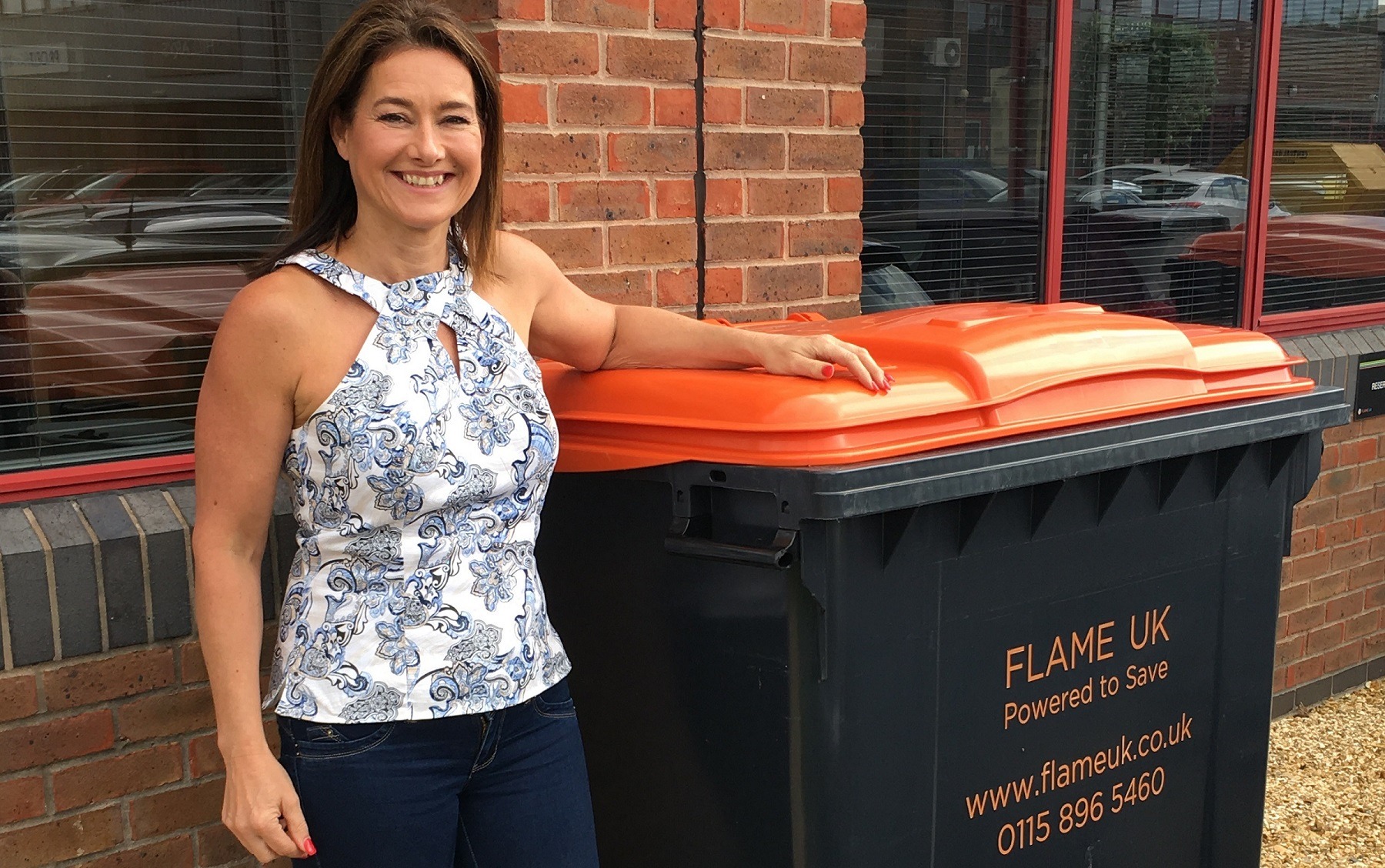As a waste baler provider, the Riverside team liaises with an array of industry experts on a regular basis.
So, in our latest Q&A, we’re introducing some of the ‘faces behind the waste’. First up, it’s Pam Knight, Managing Director and founder of Flame UK. Find out about her role, career history, and what she thinks about the future of the waste industry…
Tell us a little bit about your company:
Flame UK is a privately owned waste management company, established in 2015. We’re not your typical waste broker – instead we act as a fully integrated element of our customers’ environmental backbones, supporting them in a unique way by providing a holistic approach to waste management and compliance.
Being responsible for every aspect of a client’s ecological impact is a complex role, and our team of experts prides itself on offering high levels of customer satisfaction. We provide services to a range of large corporate and blue-chip clients – many of which have ISO14001 accreditation, with ambitious green and carbon reduction targets.
What’s your role there?
I have a very hands-on role within the company and as a close-knit team, we work as a solid unit. As the managing director, I also oversee the businesses infrastructure and systems we rely on.
What’s your favourite part of the job?
That’s a tough one! Working closely with our customers is one of the things I enjoy most, as our diverse range of clients brings with it a real variety. No day is the same and the opportunities to learn something new are therefore endless. Constant challenges and unique experiences create a wonderful working environment and one that is so rewarding to be a part of.
Sum up the UK waste industry in three words:
Innovative, exciting, complex.
How long have you worked at Flame UK and what’s your career history?
I established Flame UK six years ago, having spent the seven years prior to that working for a facilities management company as head of their account management team. Before that I was in banking – starting my career at Yorkshire Bank on the front desk – but I left a role as a manager to be a stay-at-home mum and bring up my three boys.
How would your colleagues describe you in one word?
Committed.
What is one of the main challenges being faced by the sector right now?
That’s quite simple to answer! Our industry suffers from poor service levels, which are a real thorn in the side of anyone who is at the front line of waste collections – be it a customer who wants their waste collecting on time or a broker managing a vast number of contractors. Poor response times and missed collections seem to be a constant cause of issues.
We also appear to live in an IT backwater in the waste sector, where a vast majority of the industry are not as digitally savvy as others – connecting service providers and collection facilities is just one area that needs to be improved. Although I see the lack of environmental education as a real burden for our future, to implement big changes we need to address this and combine our knowledge – more businesses need to be open to collaboration as that’s how we’ll move mountains.
Tell us something we may not know about the waste industry…
Around 20 years ago, we were all advised that the future of waste was in segregation, and told to have additional bins, skips, and Roll On Roll Offs to separate out our plastics, cardboard, and other recyclable waste. That was taken on board, with firms installing new bins for their recyclable materials and adding more and more collections to their sites. Maybe we overlooked the carbon emissions in providing these collections at the time – or the desire to physically recycle more was too overwhelming – but that was what happened. Now, in 2021, we are seeing the large national and international waste companies dropping specific collections. Many do not even offer plastic, cardboard, or paper-only collections on regular compaction vehicles at all anymore, making a conscious move to collect only two fractions – recyclable and general waste.
The investment levels required to build and operate a highly efficient waste transfer station mean that collecting already separated recyclable materials – at a considerably lower cost than that of mixed recycling or general waste – isn’t a viable alternative. Personally, I think there is a space for this, as I believe that the carbon emissions do need to be taken into consideration. With many collections taking place, and the larger companies having this stance, perhaps new, smaller dedicated recycling operations will open up for those who still want their materials collected separately.
What’s your relationship with Riverside?
Riverside Waste Machinery is one of our approved suppliers of waste equipment and we enjoy a great relationship with the team, benefitting from their quick responses and very knowledgeable engineers. We’ve had a large number of balers provided by Riverside over the years and always find them to go above and beyond to make things work perfectly, which is exactly what we’re looking for in a supplier.
Finish the sentence: The future of waste is…
Challenging, exciting, and evolving. I heard someone say recently that there’s no ‘Planet B’ and that’s so true, but without better waste education for everyone we will be facing a longer-lasting challenge.






